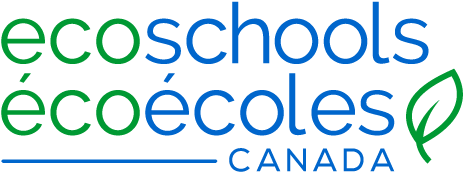As we look ahead to the 22nd annual Conference of the Parties, which will take place in Marrakech Morocco on November 7-18 2016, now is an excellent time to get informed about what this gathering means for Canada and the world, what possible outcomes will emerge, and actions your school can take for a better climate future.
Don’t forget: by committing to take action during or after COP22, you can enter our Climate Leadership Contest for the chance to win $500 for your school’s next eco-initiative!
Last December, 196 member countries gathered in Paris for COP21, meeting to negotiate a climate agreement to tackle greenhouse gas emissions on a global scale. After long days and nights of negotiations, member parties reached a legally-binding agreement, to keep global warming “well below” two degrees Celsius above pre-industrial temperatures. As part of the agreement, countries have brought to the table Intended Nationally Determined Contributions (INDCs) which represent the sum total of efforts of each party to contribute to meeting the objectives laid out in the convention. These pledges will be reviewed every five years.
Watch a short video summary of the outcomes of COP21.
What comes next? Overall, recent media coverage is indicating that the priorities for COP22 will be accelerated action and implementation of the Paris Agreement, reached during COP21. What will this entail? Here are some of breakthroughs we may see in Marrakech:
- Climate justice: Bringing global attention to the urgent need to prioritize climate issues affecting vulnerable African and island states.
- Financial mechanisms: Ironing out the details of cap-and-trade schemes, which many of the member parties have adopted as part of their national strategies to reach emissions reduction targets.
- Resilience: Producing an action plan on how developed countries will financially assist vulnerable states to address the effects of climate change (which are felt on a much large scale than we are dealing with in Canada) while improving resilience, or the ability to return to stability after a shock. In African countries, concerns about the impacts of climate change on agriculture will be brought to the forefront.
- Local action: Assembling local organizations, including civil society, government institutions, and private-sector parties across Morocco to allow for discussion and collaboration to emerge in advance of the official COP22 meetings. This year, the Moroccan Coalition for Climate Justice has taken on the role of a local organizer. In the days before COP22, the MCCJ is bringing together the country’s 12 regions, its regional councils, civil society, academia and the private sector to produce 12 regional environment and climate action plans. Details here.
- Strength in numbers: Supporting the mobilization of state and non-state actors – including several youth coalitions – in the climate action agenda.
Need ideas to get your started planning your climate change action in connection to COP22? Here are just a few examples of what climate change-related campaigns schools undertook last year.
- Turn down the heat! One of the most popular Environmental Stewardship campaigns is Sweater Day, organized each year by WWF Canada – but you can plan your own anytime during the colder months. Last year students at Connaught Public School (DSBN) learned facts and figures about climate change, brainstormed and discussed in class, and participated in a ‘turn down the heat’ event at the school, as well as an ‘ugly sweater’ contest.
- Share your ideas with political leaders! John Cabot Catholic Secondary School (DPCDSB) students wrote about their own experiences with and attempts to combat climate change in their lives; they then sent postcards to the federal government to push them to be proactive in its policy on environmental issues. Some students later joined a rally at Queen’s Park in Toronto.
- Build community with other concerned citizens! Students at Leamington District Secondary School (GECDSB) followed along with the proceedings at COP21 in Paris and submitted their recommendations to leaders via Twitter. Many students took part in the Avaaz Global Climate March, carrying signs and banners with messages to our leaders to take strong action at COP21. After the march and school-wide assembly, almost every student took a pledge to take at least one achievable action to help combat climate change, like weekly vegetarian days or eliminating plastic drink containers.
- Make a personal pledge and take action! As part of their Earth Week celebrations, Vaughan Secondary School in Thornhill (YRDSB) connected local issues – such as supporting local food producers, reducing waste, and using sustainable transportation to get to school – with their own personal pledges.
If you haven’t checked out our new Climate Change Toolkit, download or print a copy to guide your learning and action around climate change in your school community and beyond.

Recent Comments